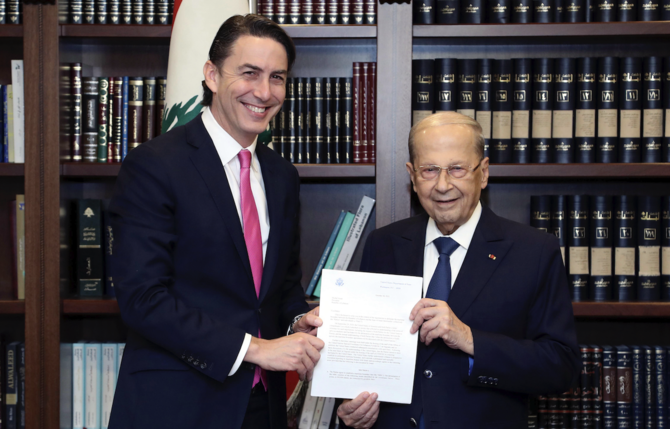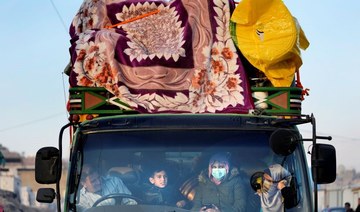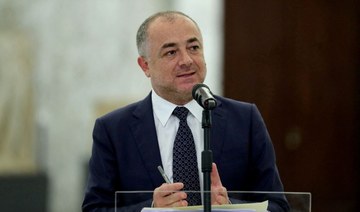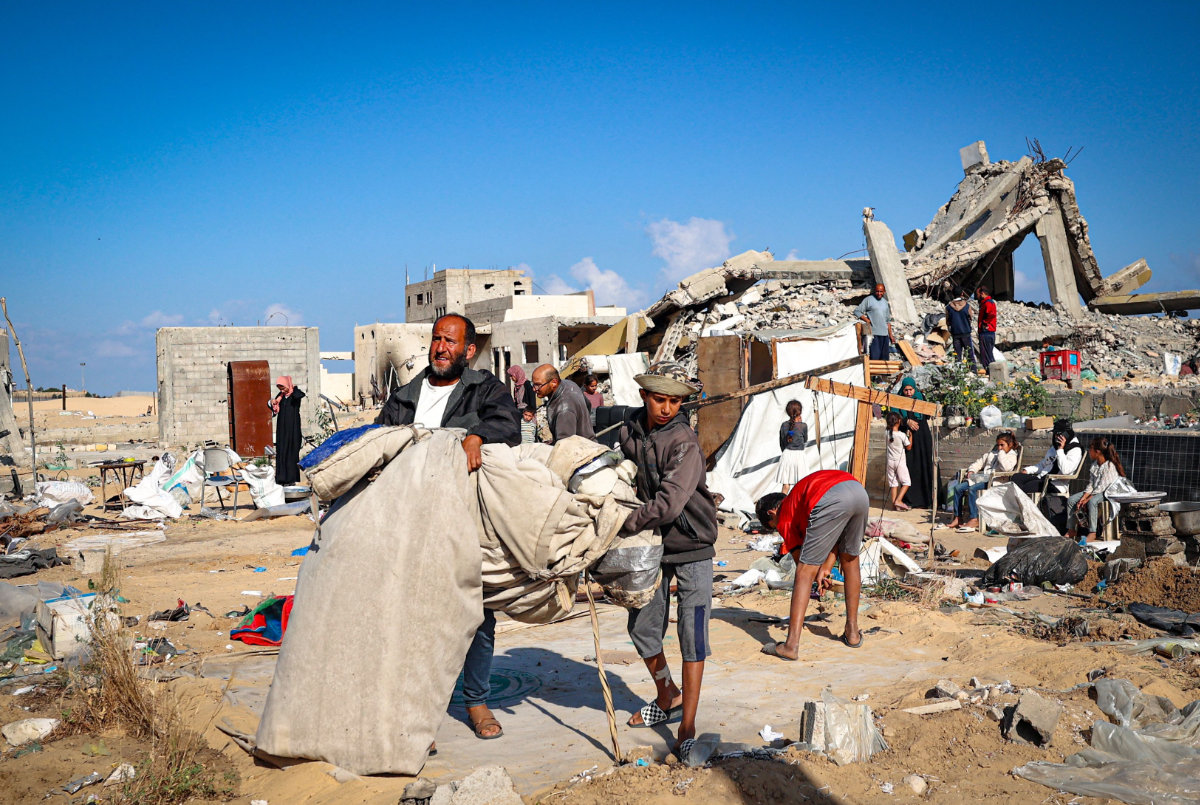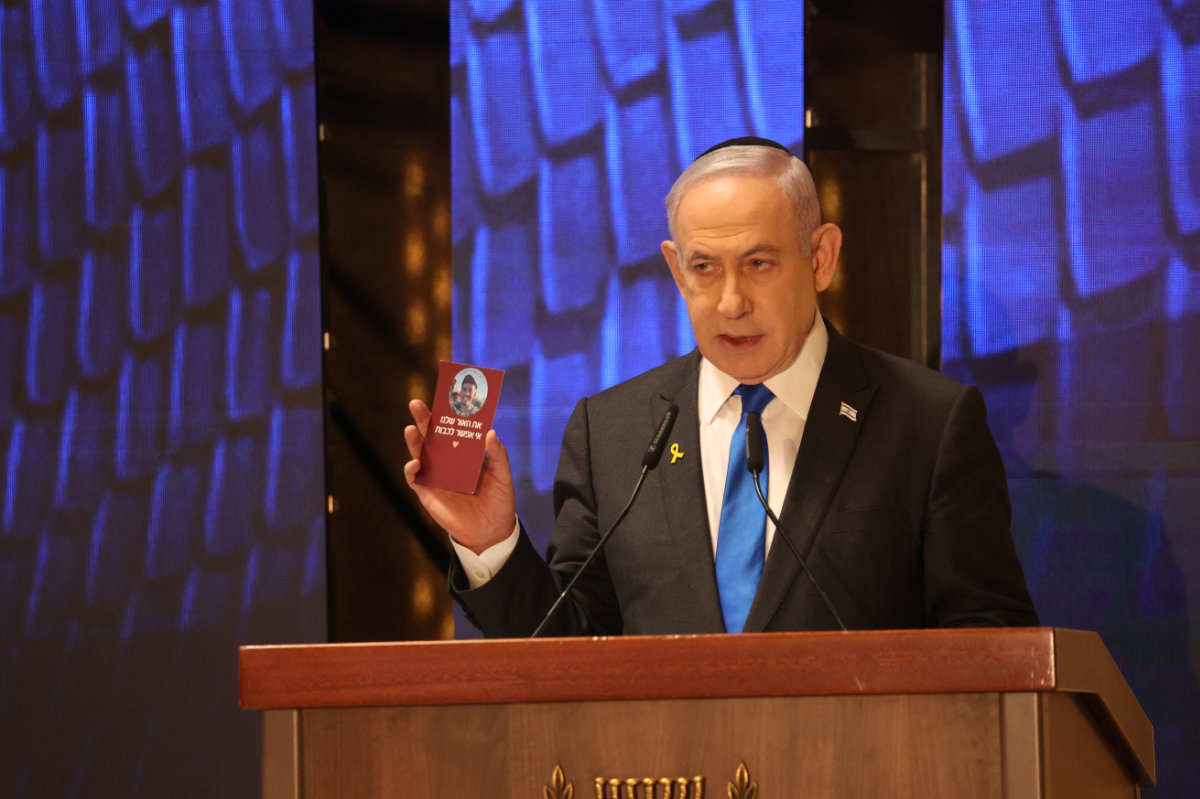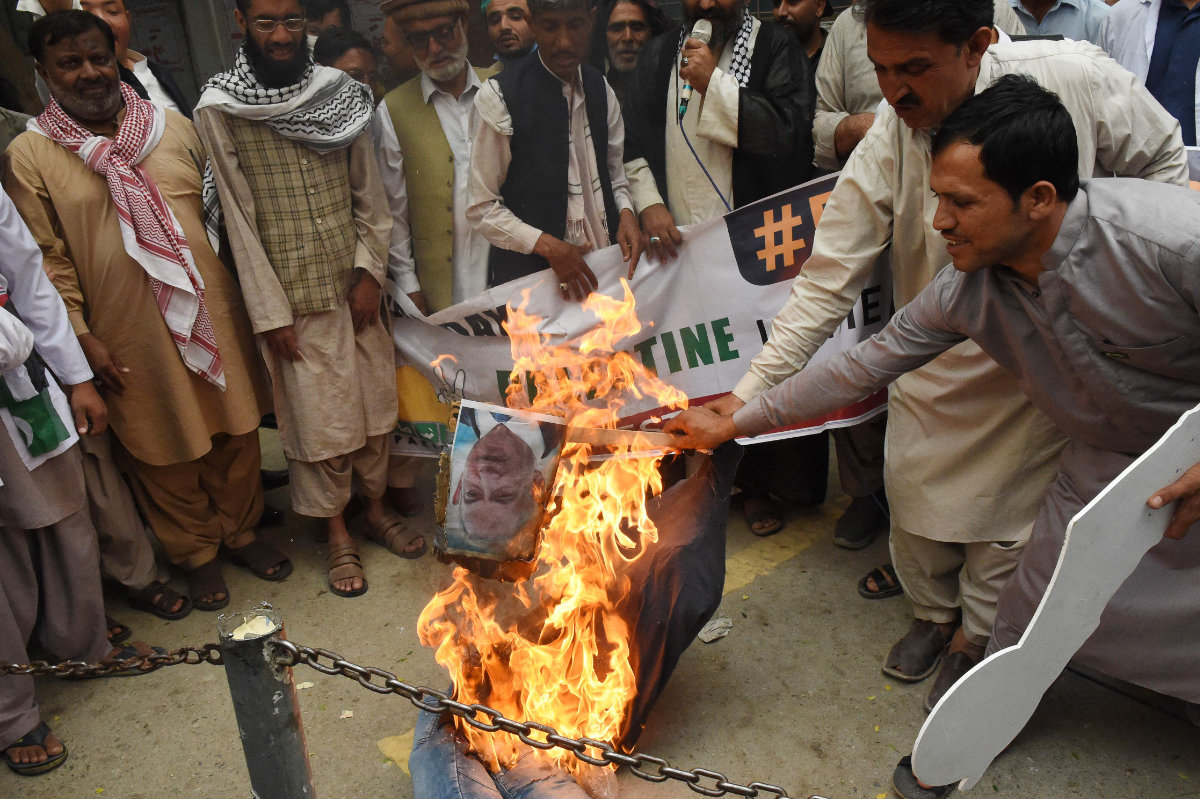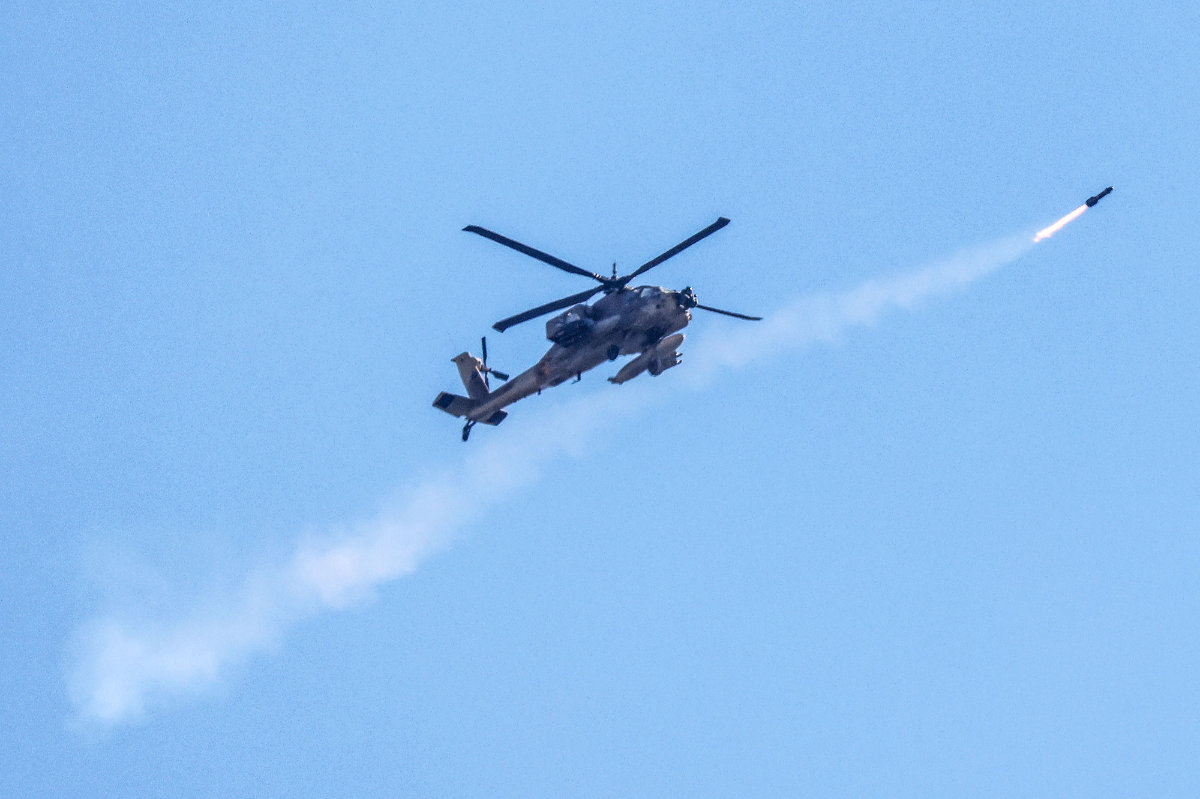BEIRUT: The maritime border demarcation agreement between Lebanon and Israel, mediated by the US under the auspices of the UN, reached its final official stage on Thursday, with both sides unilaterally signing the proposal without any contact between them at the headquarters of the UN Interim Force in Lebanon in Naqoura.
Lebanon handed over a copy of the agreement to US mediator Amos Hochstein, signed and approved by President Michel Aoun.
Another copy was handed over to the UN, represented by its Special Coordinator for Lebanon Joanna Wronecka.
French Ambassador to Lebanon Anne Grillo was also present in Naqoura.
The agreement will allow Lebanon to start exploration operations through the French company TotalEnergies for potential quantities of gas and oil in the Qana field, part of which it shares with Israel.
The agreement allows Israel to start extracting gas and oil from the Karish field, which became officially under Israeli control after Lebanon ceded Line 29.
As US President Joe Biden received on Wednesday Israeli President Isaac Herzog at the White House, he noted that this agreement was a historical breakthrough.
Israeli Prime Minister Yair Lapid called it a tremendous achievement. “Not every day an enemy country recognizes the State of Israel, in a written agreement before the international community,” he said.
Germany said it was a big step toward more stability in the region.
Deputy Speaker of Parliament Elias Bou Saab, who handled the negotiations with Hochstein, said: “It’s the beginning of a new era between two countries that are technically at war.
“We have heard of the Abraham Accords. Today, we have the Hochstein Accords; it is a new era.”
Earlier, Hochstein arrived at the presidential palace where he met Aoun, accompanied by US Ambassador to Lebanon Dorothy Shea.
Bou Saab, Lebanese Foreign Minister Abdullah Bou Habib, Director-General of the Lebanese General Security Maj. Gen. Abbas Ibrahim and members of the negotiating delegation attended the meeting.
After the meeting, Hochstein said: “What matters today is what will happen after the agreement, and I believe that it will be an economic turning point for Lebanon.
“Signing such an agreement will bring stability to the region and will allow TotalEnergies to begin its work, which nothing will hinder, and no one will take the oil and gas revenues from the Lebanese.
“The most important thing in the agreement is that it serves both sides and it is not in their interests to violate it.”
He also visited caretaker Prime Minister Najib Mikati and Parliament Speaker Nabih Berri.
Mikati said: “I hope this achievement (will) be an essential step on the path to benefiting from Lebanon’s wealth of gas and oil, which would contribute to solving the financial and economic crises that Lebanon is experiencing, and help the state stand back on its feet.”
He added: “The attention shown by President Biden and French President Emmanuel Macron gave impetus to a new path in the region and to support Lebanon in its economic recovery.”
Hochstein said that he expects the agreement to withstand leadership changes in both countries, in reference to the upcoming Israeli elections and the end of Aoun’s term.
“The agreement must continue regardless of who will be elected very soon as Lebanon's president,” he said.
The Israeli government, headed by Lapid, ratified the agreement, which the prime minister said was a diplomatic and economic achievement in which Lebanon recognized the state of Israel.
The media were prevented from accessing the signing venue, and the details were shrouded in secrecy.
The Lebanese delegation had initially refused to enter the UNIFIL headquarters in Naqoura after seeing that Israeli boats had violated Lebanese territorial waters. UNIFIL made calls, however, and the boats withdrew.
The Lebanese and Israeli delegations were reportedly in the same room without any contact between them.
UNIFIL spokesman Andrea Tenenti said, “The agreement will enhance stability in southern Lebanon and pave the way for resolving the outstanding points regarding defining the Blue Line,” referencing the land borders.
Bou Habib said: “TotalEnergies will start work in the Qana field to explore for gas after the signing of the agreement. The text of the agreement to demarcate the maritime borders will be officially published once it is signed.”
Oil expert Dr. Rabih Yaghi said the agreement creates reassurance for foreign companies to head toward the Lebanese exclusive economic zone, specifically to Blocks 8, 9 and 10, which are promising fields.
“In the event of any commercial discoveries, evaluations will be required to know quantities, determine depths and develop plans, after which the process of building the infrastructure for transporting gas from the sea begins. We have at least nine to 10 years before we reach the stage of commercial production for gas and oil to be available for local consumption and then export,” Yaghi explained.
Hezbollah chief Hassan Nasrallah said in a televised speech: “We consider what happened a great victory for Lebanon. The resistance’s exceptional mobilization against Israel is now over.
“Mission accomplished,” he added.



